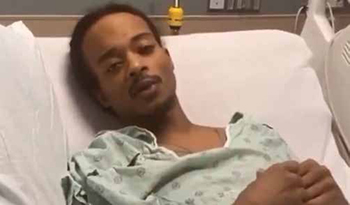Solidarity Can Prevent Another Breonna Taylor, Daniel Prude, or Jacob Blake
October 30, 2020
Wisconsin police shooting victim is a member of our 1199 family.

My brother, Jacob Blake, Sr., is now fighting for the life of his son, Li’l Jake, a victim of abusive police like too many other Black women and men.
I know that 1199ers in Rochester, NY have been active in the struggle for justice for Daniel Prude, killed by police earlier this year. And we will always say the name of Breonna Taylor, a healthcare worker, murdered by Louisville police in her own home. It is a very long and terrible story dating back to the 19th century’s Southern slave patrols. It is a tragedy that, nearly 250 years after the founding of the United States and nearly 160 years after Emancipation, we still need to insist that Black Lives Matter, and it is a shame that this insistence should still be consider controversial. Knowing 1199 and my mother’s devotion to the Union, I know that you sisters and brothers don’t need convincing that the fight for racial justice is built into this union’s DNA. But not all labor unions are on board. Certainly not most police unions which, despite increasing numbers of Black and Brown officers, remain largely in the control of conservative—even Trumpsupporting— white leaders.
Half a century ago, my father marched across the Edmund Pettus Bridge in Selma, Alabama, with Martin Luther King, Jr. and John Lewis. Dr. King and the Civil Rights Movement understood well the intrinsic relationship between civil rights and labor rights. The famous 1963 March on Washington was a march “For Jobs and Freedom.” Dr. King was murdered in Memphis, where he went to march in solidarity with that city’s striking sanitation workers.
Black workers make up nearly 15 percent of the country’s unionized workforce. In the service and public sector workforce, the percentages are considerably higher. So civil rights and labor rights are twin demands that should never be posited against each other. The civil rights and labor movements are strongest when they are joined and fortifying one another.
We live in very dangerous times, with a racist and anti-labor President leading the charge. But as we saw this summer, the movement for Black Lives is stronger than ever. And combined with our labor movement acting on behalf of all workers, we won’t be stopped. As my mother said, the fight must go on.
- 1199 Magazine - September / October 2020

